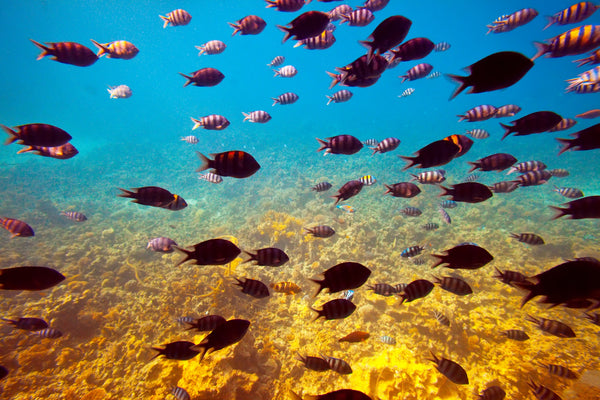Marine biodiversity refers to the variety of life in the oceans and other marine ecosystems. It encompasses the diversity of species, ecosystems, and genetic variability within marine environments. This biodiversity is essential for the health and functioning of marine ecosystems and contributes to the overall health of the planet.
Key components of marine biodiversity include:
-
Species Diversity: The number of different species in a particular area. This includes a variety of marine organisms such as fish, mollusks, crustaceans, marine mammals, and microorganisms.
-
Ecosystem Diversity: The variety of marine habitats or ecosystems, ranging from coral reefs and kelp forests to deep-sea hydrothermal vents. Each ecosystem supports a unique set of species adapted to its specific conditions.
-
Genetic Diversity: The variation in the genetic makeup within species. Genetic diversity is crucial for the adaptation and resilience of species to environmental changes, including temperature fluctuations, pollution, and diseases.

Marine biodiversity plays a vital role in maintaining ecological balance and providing various ecosystem services, including:
-
Sustaining Fisheries: Many coastal communities rely on marine biodiversity for their livelihoods, particularly through fisheries. A diverse array of species supports sustainable fishing practices.
-
Climate Regulation: Oceans act as carbon sinks, absorbing and storing large amounts of carbon dioxide. Marine biodiversity contributes to the regulation of climate by influencing carbon cycling and other ecological processes.
-
Tourism and Recreation: Diverse marine ecosystems, such as coral reefs and coastal environments, attract tourists and support recreational activities like snorkelling, diving, and beachcombing.
-
Pharmaceutical Resources: Marine organisms provide a potential source of new drugs and pharmaceutical compounds that can be used for medical purposes.
-
Scientific Knowledge: Studying marine biodiversity enhances our understanding of life on Earth, evolution, and ecosystem dynamics. It contributes to scientific advancements and the development of conservation strategies.
Unfortunately, marine biodiversity is facing numerous threats, including overfishing, pollution, habitat destruction, climate change, and invasive species. Conservation efforts are crucial to preserving marine biodiversity and ensuring the sustainability of marine ecosystems for future generations. International initiatives, marine protected areas, and sustainable fisheries management practices are some of the strategies employed to address these challenges.


0 comments